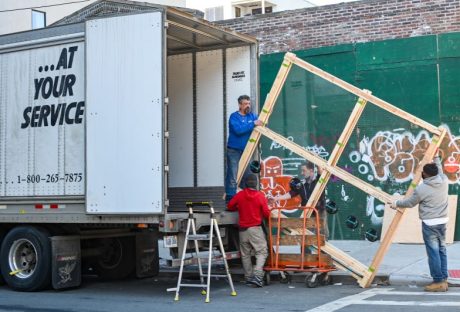Buying a house is not a small thing. It needs a huge amount of investment. No matter how good the builder is or how new the building is there is no such thing as a perfect house. There are defects in each and everything. We should not assume that the house is perfect as it is a new house. It is truly said that precaution is better than cure. We should be aware before investing in a big property. Problems always pump up without an invitation.
New home buyers should have a good relationship with the builder no matter how worst the things turn up. They make the biggest mistake by not getting into laws and depending solely upon the builders. They blindly trust the builders and believe that they are doing work ethically but that is not the case in every situation.
Mistakes to be avoided by new home buyers:
These things need to be taken care of before buying a new house:
1. Deciding the property be taken before getting a loan approval
New house buyer gets attracted to the model houses without even knowing how much they have to pay for it. The builder seduces the new house buyers by showing them the model house. The model house has beautiful rooms that may not exist in reality. The buyer gives the commitment of buying the house before even thinking about their budget.
The builder promises about attractive financial schemes that attract the buyers. The buyers should talk to at least 4-5 lenders about the mortgage loan and then take a decision. They can talk to the credit union, bank, or builders about various mortgage programs and then arrive at a conclusion.
2. Details about the builder
Many times we fail to check the background of the builder. Whether he has a good reputation in the market or not. The inquiry can be done by asking the neighbors. Consulting few past customers before purchasing the property is always helpful.
3. Ignoring the upcoming issues
The new buyers usually fail to ask about the prevailing problems in the house. We can’t be assured that all the problems will be solved easily; we need to have a clear picture of the issues before getting further. We need to ask about the punch list of problems from the builder.
4. Inspection before buying the new house
Generally, we don’t feel to get the new house inspected by a professional. We feel that everything is right as it the new house. But this is the mistake that is done by most of the new buyers that they regret later on. Seeing the interior of the house the buyers think that there can be no issues in the house but the inspectors find problems most of the time. The charges of the inspector are very nominal.
5. Bad negotiation skills
The new home buyer fails to negotiate and accept the terms and conditions of the builders without even questioning them. If negotiation is done with proper technique ten it works on the side of the buyers. It should be done professionally and equitably so as to close the best possible deal. Buyers are no more victims. They rule the real estate industry by taking control in their hands.
6. Failing to get the real estimates in good faith
Mortgage lenders don’t always provide the real estimates to new house buyers in good faith. They need to provide the estimate to the buyers within three days of the loan processing application. The documents need to be clear as per the annual income of the buyer. The loan needs to be compared before applying for it. The buyers need to visit more lenders to get a good estimate and then select the best price as per his negotiation skills which are in his good faith.
The new house buyers should take care of all these things before buying a house. If a person is doing such a huge investment in the property then he needs to be careful and take utmost precautions for it. The most important thing is to take considerable time in doing the research before selecting anything.
Buyers should consult the new building company and clear the above things and match the criteria before purchasing the house. The best solutions can be provided by them as they have the knowledge about the local trend and culture prevailing. The buyers will also have satisfaction after consulting the local building company as it is from his own locality. They will have accurate information about the company and it will be easy for them to do research about the company. This is the benefit of consulting the local company instead of a company from other states.
Read Also:























